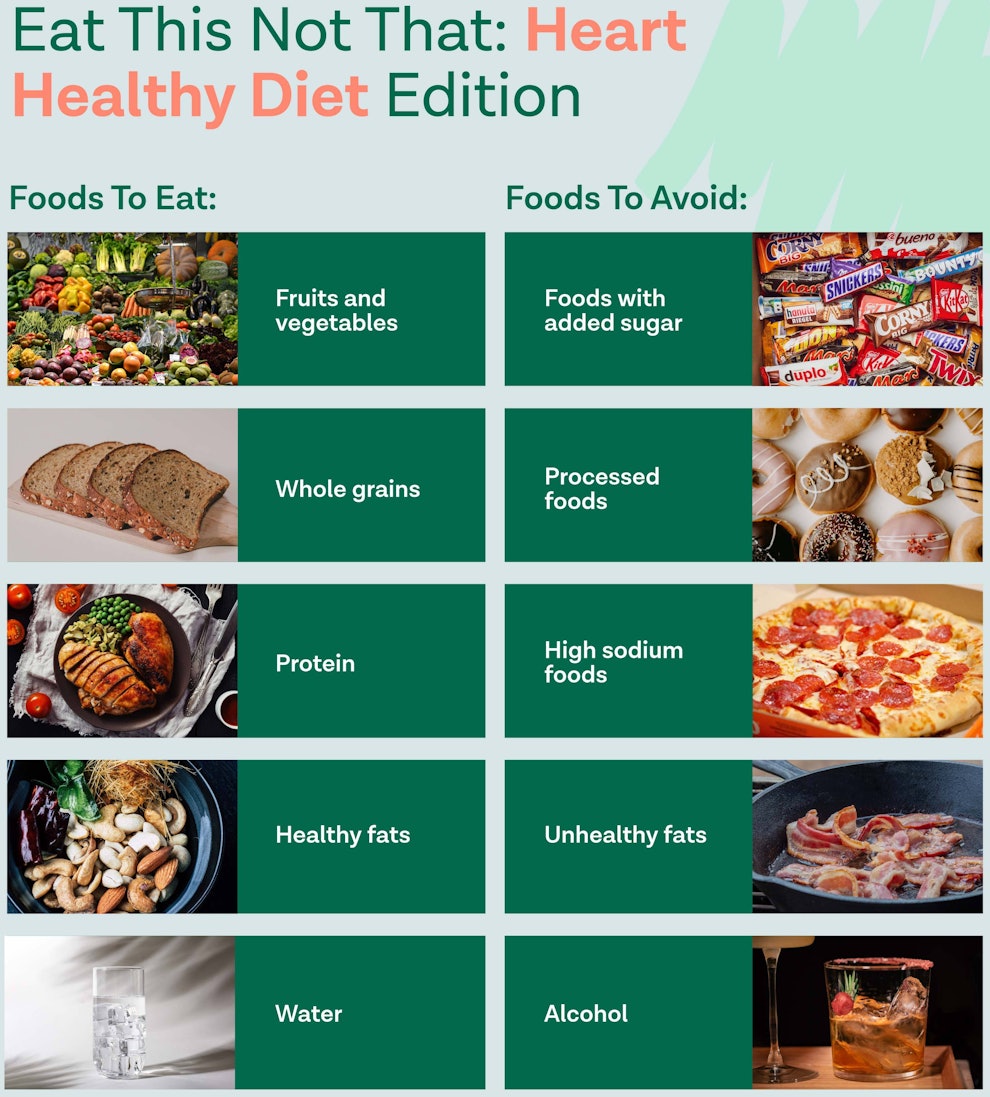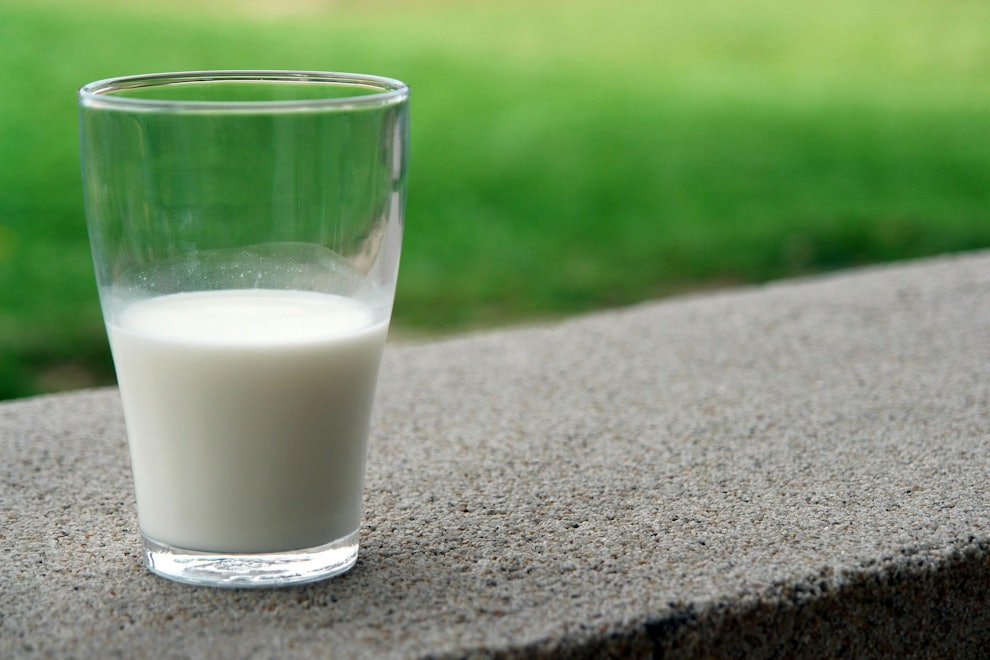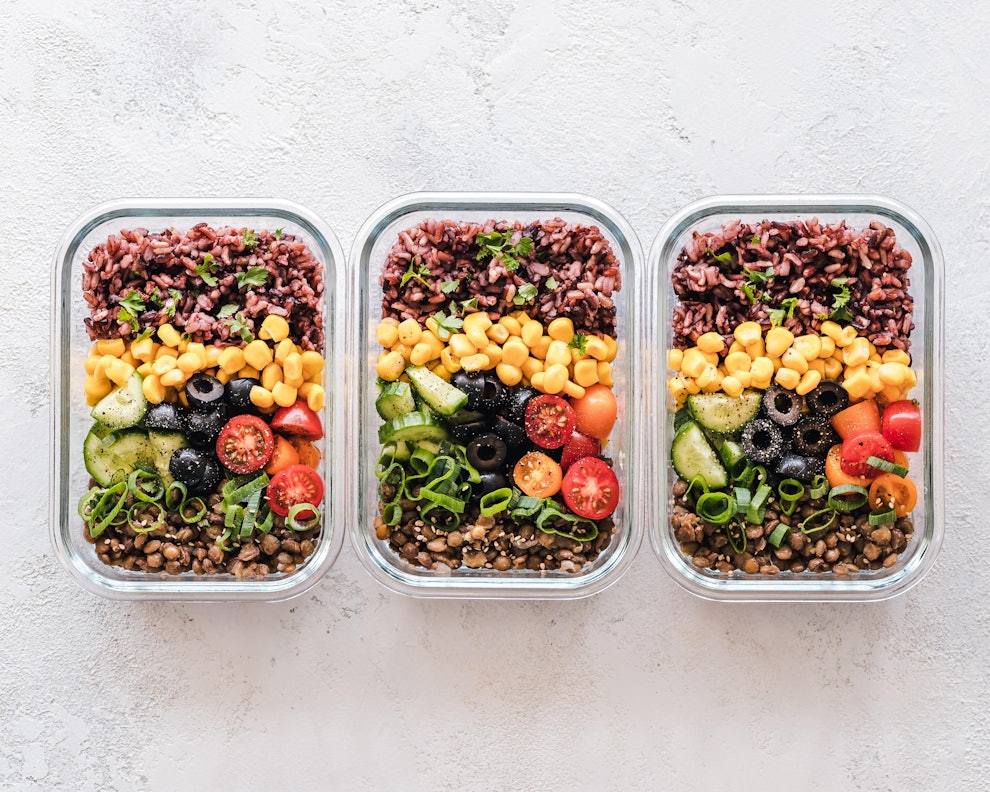4 Tips On How To Eat A Heart-Healthy Diet
Article at a glance
A heart-healthy diet is a vital way to prevent heart disease and consists of eating fresh foods.
A heart-healthy diet includes fruits, vegetables, lean protein, whole grains, and more. It is important to limit food high in saturated fats, trans fats, salt, and more.
In addition to diet, there are other lifestyle modifications one can make to further improve heart health and reduce the risk of developing heart disease.

A healthy heart is imperative for a healthy life. This article will discuss the basics of keeping a healthy heart, emphasizing a heart-healthy diet.

What Is Heart Disease?
Heart disease is an umbrella term for a variety of conditions, including some types of cardiovascular disease, that impact the heart’s ability to function properly. The four main types of heart disease are coronary heart disease, stroke, peripheral arterial disease, and aortic disease.
Out of all the heart diseases, the most common type is coronary heart disease. Coronary heart disease occurs when the heart’s arteries cannot deliver oxygen-rich blood to the heart. This type of heart disease is either caused by a build-up of plaque in the arteries or issues with how the blood vessels work.
Luckily, there are various ways to reduce the risk of developing heart disease.
Risks of Heart Disease
The risks associated with heart disease include:
- Heart attack
- Stroke
- Heart failure
- Arrhythmia (irregular heartbeat)
Luckily, heart disease is preventable through a healthy lifestyle. In particular, diet is especially important.

Heart-Healthy Diet: Foods To Eat
There are a number of heart-healthy foods to incorporate into one’s diet in order to lower one’s risk of heart disease including fruits, vegetables, grains, and more.
Fruits and Vegetables
Fruits and vegetables are the building blocks of a heart-healthy diet. The Centers for Disease Control and Prevention (CDC) recommends adults eat 1.5 to 2‑cup equivalents of fruits and 2–3 cup equivalents of vegetables each day.
Note: Frozen, canned, and fresh vegetables and fruits can all be healthy. That said, reading the labels of canned and frozen varieties is important. Learn more about picking the best options for canned and frozen vegetables and fruit at this resource.
Whole Grains
Not only are whole grains a great source of fiber, but whole grains are also fantastic for the heart.
Options for whole grains include:
- Wild rice
- Brown rice
- Whole-grain pasta
Protein
Adding healthy protein sources to one’s diet is excellent for overall heart health. Options for healthy protein include:
- Lean meats
- Eggs
- Nuts and seeds
- Low-fat yogurt
Healthy Fats
Fat isn’t a bad thing so long as it comes from healthy sources and is consumed in moderation. Polyunsaturated fat and monosaturated fat are considered to be healthy fats that include omega‑3 fatty acids. Omega-3s can be highly beneficial for the heart because these essential fatty acids can reduce triglycerides, slow the build-up of plaque in the arteries, slightly lower blood pressure, and diminish the risk of developing an irregular heartbeat.
Foods with polyunsaturated fats include:
- Salmon
- Olive oil
- Avocado
- Some nuts and seeds like pine nuts and walnuts
Heart-Healthy Diet: Foods To Avoid
Just as adding heart-healthy foods to one’s diet is important, so is limiting certain foods such as those with added sugar, high sodium concentration, and more.
Unhealthy Fats
There are various unhealthy fats to avoid in order to lower the risk of heart disease, including saturated fat and artificial trans fats. Always read the nutrition labels when grocery shopping to look out for unhealthy fats such as saturated and trans fats. Additionally, look out for certain ingredients, such as partially hydrogenated oils, as they can contribute to trans fat intake.
Processed Foods
Canned or processed foods should be limited when eating a heart-healthy diet. Processed foods include packaged meals, snack foods, refined carbohydrates such as pasta, lunch meats, and more.
Foods With Added Sugar
Look for added sugar in packaged foods such as canned vegetables and fruits.
High Sodium Foods
Too much salt can cause a number of health issues, which is why monitoring one’s salt intake is important.
Alcohol
Alcohol should only be consumed in moderation. The CDC recommends avoiding alcohol altogether or consuming two drinks or less in a day for men and one drink or less for women. Alcohol is associated with an increased risk of developing heart disease as well as other health conditions including high blood pressure, stroke, liver disease, and more.

What About Dairy?
In terms of the effect dairy has on heart health, research results are mixed. Certain types of dairy contain saturated fats and trans fats that can raise cholesterol levels. However, some types of dairy, notably low-fat dairy products, do not improve heart health but do also not have a negative impact. Some types of dairy recommended by the Heart Foundation include:
- Low-fat yogurt
- Unflavored milk
- Low-fat cheese
Note: While some of the fats in dairy products can contribute to a healthy diet, most of the fat you consume should come from healthy oils, such as those found in fish, nuts, and seeds.

4 General Heart-Healthy Diet Tips
In addition to knowing which foods to add and which foods to avoid, there are various strategies when it comes to buying and eating foods that can help make healthy eating easier.
- Focus on color: “Eating the rainbow” is essentially making one’s meals as colorful as possible because fresh foods tend to be more colorful in general.
- Eat appropriate portion sizes: Eating appropriate portion sizes helps with weight management and ensures that one doesn’t overeat and gets the appropriate amount of nutrients needed.
- Practice mindful/intuitive eating: Mindful eating can ensure you don’t overeat which is helpful for healthy weight management and weight loss. Mindful eating includes strategies such as eating free of distractions (i.e. no eating in front of the TV), eating slowly, and taking breaks between bites.
- Meal prep: Planning meals ahead of time and meal prepping isn’t only good to make sure one isn’t wasting food but also helps one make healthier choices since food will already be prepped and ready to go.

Additional Tips For A Healthy Heart
In addition to eating a healthy diet, there are a number of other ways to keep the heart healthy:
Exercise regularly: Getting regular exercise has many health benefits including a lower risk for heart disease. 150 minutes of moderate-intensity aerobic exercise is recommended weekly, as well as incorporating weight training twice a week.
Maintain a healthy weight: Keeping one’s weight within a healthy range is important. In most cases, a healthy weight is considered to be a body max index (BMI) between 18.5 and 24.9. (Note: This online BMI calculator can help one determine their own BMI.)
Quit smoking: Smoking increases one’s risk for heart disease and a number of other ailments which is why quitting smoking is essential for health overall.
Control cholesterol and blood pressure: High cholesterol and high blood pressure are both risk factors for heart disease which is why it is important to keep cholesterol levels and blood pressure in healthy ranges.
Manage stress: Stress can trigger a variety of health issues including heart disease, depression, and high blood pressure. Stress management techniques include deep breathing, meditation, yoga, and more. (Note: Learn more about stress management at this resource.)

FAQ
What is the best heart healthy diet?
Diets that are low in saturated fats, low in sodium, and higher in fiber are considered better for heart health.
What foods are hard on the heart?
Processed meats such as hotdogs, overly processed grains, and soda are difficult on the heart due to higher amounts of sodium, sugar, and unhealthy fats.
Which drinks are best for the heart?
Beverages such as water, sparking water, unflavored milk, fortified plant-based milk, tea, coffee, and small glasses of fruit or vegetable juices are all considered good for heart health.
Sources
- https://www.heart.org/en/healthy-living/healthy-eating/eat-smart/nutrition-basics/aha-diet-and-lifestyle-recommendations
- https://health.gov/myhealthfinder/health-conditions/heart-health/heart-healthy-foods-shopping-list
- https://www.heart.org/en/healthy-living/healthy-eating/add-color/fresh-frozen-or-canned-fruits-and-vegetables-all-can-be-healthy-choices
- https://health.gov/myhealthfinder/health-conditions/heart-health/keep-your-heart-healthy
- https://www.nhlbi.nih.gov/health/coronary-heart-disease
- https://www.nhlbi.nih.gov/health/heart-healthy-living
- https://www.nhlbi.nih.gov/health/heart-healthy-living/healthy-weight
- https://www.nhlbi.nih.gov/health/heart-healthy-living/risks
- https://medlineplus.gov/ency/patientinstructions/000747.htm
- https://www.cdc.gov/mmwr/volumes/71/wr/mm7101a1.htm
- https://www.cdc.gov/alcohol/fact-sheets/moderate-drinking.htm
- https://www.cdc.gov/alcohol/fact-sheets/alcohol-use.htm
- https://www.heart.org/en/health-topics/consumer-healthcare/what-is-cardiovascular-disease
- https://www.heartfoundation.org.au/bundles/healthy-living-and-eating/dairy-and-heart-health
- https://www.nhlbi.nih.gov/sites/default/files/publications/FactSheetKnowDiffDesign2020V4a.pdf
Become a patient
Experience the Oak Street Health difference, and see what it’s like to be treated by a care team who are experts at caring for older adults.




